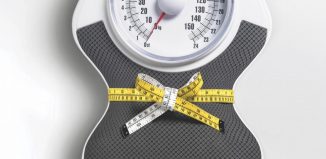Do we hydrate enough?
Dehydration is a topic that is often overlooked or given only cursory thought, but it’s very important. Dehydration is simple to avoid, right? Not necessarily. The problem is that we may be dehydrated prior to experiencing symptoms of thirst. In the heat of summer or while exercising, you’re more likely to think about hydration, though you may not actually hydrate enough; however, it’s relevant year-round. Complications and symptoms of dehydration can be mild to severe, ranging from constipation, mood changes, headaches and heart palpitations to heat stroke, migraines and heart attacks.
Effect on headaches and migraines
Temperature is a potential trigger for headaches and migraines. As the temperature rises by intervals of nine degrees, the risk for headaches and migraines increases by 8 percent (1). This study involved 7,054 participants from one emergency room site. Warmer temperatures can potentially reduce blood volume in the body, causing dilation of the arteries, resulting in higher risk of headaches and migraines.
In another study, those who drank four cups more water per day had significantly fewer hours of migraine pain than those who drank less (2). Headache intensity decreased as well. Anecdotally, I had a patient who experienced a potentially dehydration-induced migraine after playing sports in the sweltering heat. He had the classic aura and was treated with hydration, acetaminophen and caffeine, which helped avoid much of the suffering.
Impact on heart palpitations
Heart palpitations are very common. They are broadly felt as a racing heart rate, skipped beat, pounding sensation or fluttering. Dehydration and exercise are contributing factors (3). They occur mainly when we don’t hydrate prior to exercise. All we need to do is drink one glass of water prior to exercise and then drink during exercise to avoid palpitations. Though these are not usually life-threatening, they are anxiety-producing for patients.
Heart attacks
The Adventist Health Study, an observational study, showed a dose-response curve for men (4). In other words, group 1, which drank >five glasses of water daily, had the least risk of death from heart disease than group 2, which drank >three glasses of water daily. Those in group 3, which drank <two glasses per day, saw the least amount of benefit, comparatively. For women, there was no difference between groups 1 and 2; however, both fared better than group 3. The reason for this effect, according to the authors, may relate to blood or plasma viscosity (thickness) and fibrogen, a substance that helps clots form.
Stroke outcomes
Researchers at Johns Hopkins presented findings at the International Stroke Conference 2015 that suggest dehydrated stroke patients have a four times increased risk of having more severe outcomes between hospital admission and discharge than those without dehydration.
Dehydrated patients who presented to the emergency room within 12 hours of an ischemic (low blood flow caused usually by a clot) stroke had poorer outcomes four days later than those who were not dehydrated (5). Stroke severity was similar between the two groups, and none of these patients had kidney failure. The researchers used National Institutes of Health Stroke Scale (NIHSS) to assess daily stroke severity and used magnetic resonance imaging to calculate the number of resulting brain lesions.
The authors suggest that additional research is necessary to determine appropriate methods for rehydration that will avoid exacerbating some underlying medical conditions, like congestive heart failure.
There were some limitations of this study, including its small size, 126 patients, use of indirect markers to measure dehydration and varied MRI timing. It was also not clear whether the dehydration may have caused the strokes, or whether they were a result of medications that negatively affect the kidneys (6).
In an editorial response Dr. Jeffrey Berns, the editor-in-chief of Medscape Nephrology, noted that the above study was not one of dehydration but rather one of volume depletion (7). This is important because you can treat with the wrong substance and cause a negative effect. Dehydration results in elevated sodium in the blood and increased serum osmolarity, turning it a dark color — not to be confused with certain foods or medications that can color your urine.
However, volume depletion is a clinical diagnosis that might affect kidneys by raising the BUN/creatine ratio. If you treat the latter with water, you may cause low blood levels of sodium, which can be dangerous. Interestingly, in my clinical practice, I treat volume depletion and dehydration similarly with smoothies that predominantly contain fruits and vegetables. Regardless of which diagnosis, you may be able to treat with fluids that contain electrolytes, particulates and that are nutrient-dense.
Mood and energy levels
One small study found that mild dehydration resulted in decreased concentration, subdued mood, fatigue and headaches in women (8). In this small study, the mean age of participants was 23, and they were neither athletes nor highly sedentary. Dehydration was caused by walking on a treadmill with or without taking a diuretic (water pill) prior to the exercise. The authors concluded that adequate hydration was needed, especially during and after exercise. I would also suggest, from my practice experience, hydration prior to exercise.
Different ways to remain hydrated
Now we realize we need to stay hydrated, but how do we go about this? How much water we need to drink depends on circumstances, such as diet, activity levels, environment and other factors. It is not true necessarily that we all should be drinking eight glasses of water a day. In a review article, the authors analyzed the data but did not find adequate studies to suggest that eight glasses is supported in the literature (9). It may actually be too much for some patients.
You may also get a significant amount of water from the foods in your diet. A nutrient-dense diet, like the Mediterranean or DASH diets, has a plant-rich focus. A study mentions that diets with a focus on fruits and vegetables increases water consumption (10). As you may know, up to 95 percent of fruit and vegetable weight can be attributed to water. An added benefit is an increased satiety level without eating calorically dense foods.
The myth: Coffee is dehydrating
In one review, it was suggested that caffeinated coffee and tea don’t increase the risk of dehydration, even though caffeine is a mild diuretic (11). With moderate amounts of caffeine, the beverage has a more hydrating effect than the diuretic effect.
Thus, it is important to stay hydrated to avoid complications — some are serious, but all are uncomfortable. Diet is a great way to ensure that you get the triple effect of high amounts of nutrients, increased hydration and sense of feeling satiated without calorie-dense foods. However, don’t go overboard with water consumption, especially if you have congestive heart failure or open-angle glaucoma (12).
References:
(1) Neurology 2009 Mar 10;72(10):922-927. (2) Handb Clin Neurol 2010;97:161-172. (3) Clevelandclinic.org. (4) Am J Epidemiol 2002 May 1; 155:827-833. (5) International Stroke Conference (ISC) 2015. Abstract T MP86. Presented Feb. 12, 2015. (6) Medscape Feb. 19, 2015. (7) Medscape Mar. 27, 2015. (8) J. Nutr. Feb. 2012 142:382-388. (9) AJP -Regu Physiol 2002;283(3):R993-R1004. (10) Am J Lifestyle Med 2011;5(4):316-319. (11) Exerc Sport Sci Rev 2007;35(3):135-140. (12) Br J Ophthalmol 2005:89:1298-1301.
Dr. Dunaief is a speaker, author and local lifestyle medicine physician focusing on the integration of medicine, nutrition, fitness and stress management. For further information, go to the website www.medicalcompassmd.com or consult your personal physician.






